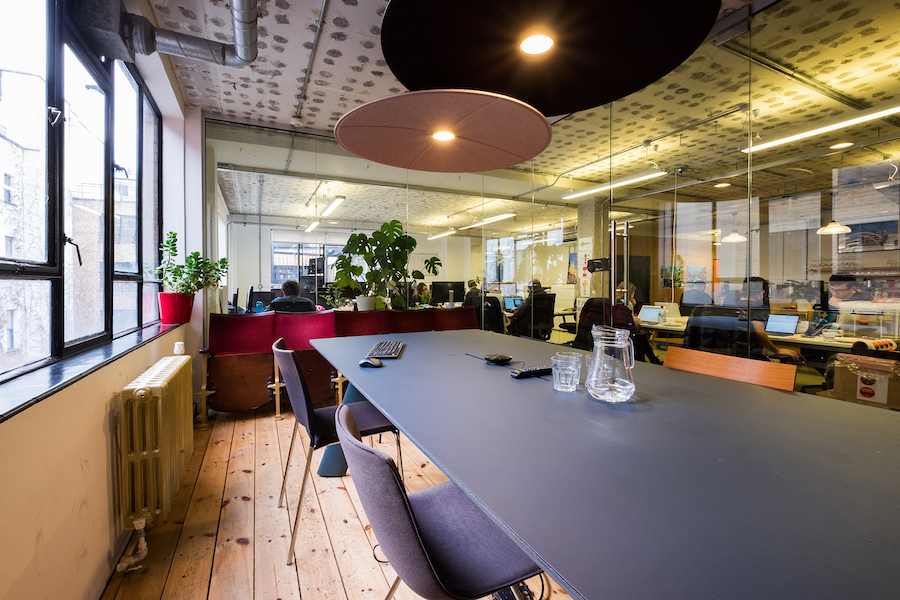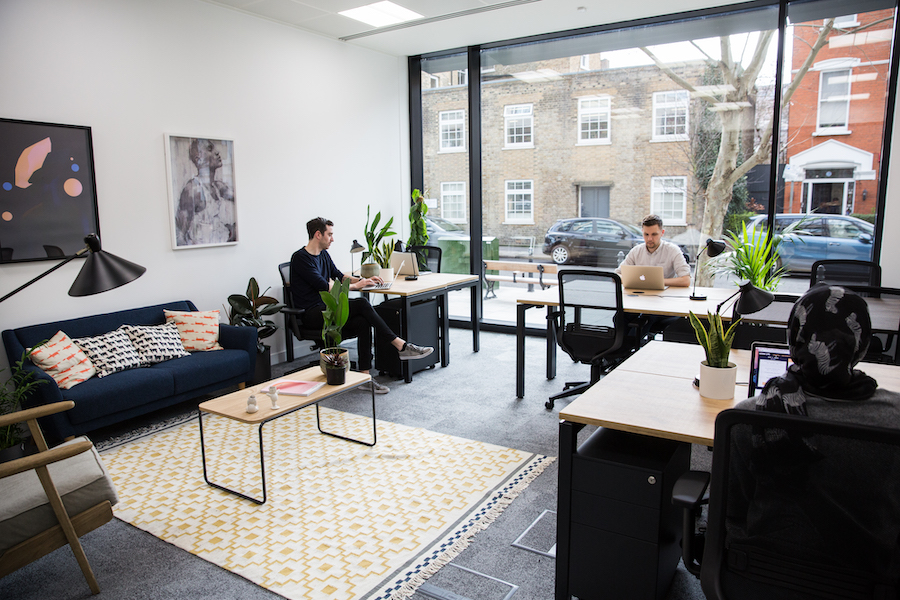- Why cut office space, and not employees?
- The under-utilisation of office space
- Forking out on expensive in-person solutions
- Avoid traditional leases by opting for a serviced office space
- Give your team access to on-demand workspace
- Opting for a hybrid workplace solution
In the face of the UK’s longest recession on record, businesses are under increasing pressure to slash expenses without sacrificing talent or productivity. The biggest lever most companies can pull? Reducing the cost of their office rent. With hybrid and remote working now the norm, there’s a massive opportunity to rethink your workspace strategy and unlock serious savings.
Whether it’s downsizing your HQ, switching to a part-time office, or adopting on-demand solutions, reducing your office footprint is the most effective way to lower costs, improve flexibility, and future-proof your business.
Why cutting office rent beats cutting staff
Letting go of employees during tough times might deliver short-term savings, but it often comes at the cost of morale, productivity, and long-term profitability. Office rent, on the other hand, is the second-largest fixed cost for most companies — and it offers much more flexibility for reduction.
Hybrid work models have revolutionised how teams operate, meaning many companies are paying for space that simply isn’t used. Downsizing or reconfiguring your office strategy can help you retain talent and cut costs without compromise.

The hidden cost of unused office space
For office-first businesses, the biggest inefficiency is often paying rent on space that goes unused. Committing to a fixed-size, long-term lease when your team only comes in a few days a week leads to “empty desk syndrome” — and poor return on investment.
Traditional leases (often 5-10 years) come with high exit fees and lock you into space you might not need. This rigidity makes it difficult to scale up or down as your business changes.

Ditch traditional leases: Go serviced and flexible
Serviced offices are a smart alternative for businesses that still want a physical HQ without the long-term commitment. These spaces come fully equipped, with flexible terms and all-inclusive pricing. You can:
- Rent for as little as one month
- Avoid fit-out costs and deposits
- Scale your space up or down as needed
Most importantly, you’ll pay for only the space you use — and get a single monthly invoice that includes rent, utilities, and facilities. This predictability is invaluable during uncertain times.
Over the years, we’ve helped hundreds of companies find their perfect HQ. Download our customer case studies to discover how Fresha secured their flexible office space and how Chilly’s effectively downsized their office space—all via Hubble HQ!

Top tip: Look beyond prime locations
Rent is highly location-sensitive. In London, Zone 2 areas like Hammersmith, Fulham, or Clapham typically offer much more affordable options than central hotspots. By being flexible on location, you can make your budget stretch significantly further.
Need help finding the best deals? Use our London Market Rent Guide to compare average desk prices across boroughs.

Right-size your office based on usage
Before making any decisions, survey your team. How often do they use the office? Which teams rely on it most? Understanding real usage patterns helps you calculate the number of desks you actually need.
Shared breakout space is also key. Don’t rent a bigger private office just to cover occasional peak days. Instead, choose buildings with ample communal areas to absorb overflow when needed.
Try Part-Time Offices
With platforms like Hubble, you can now rent a dedicated office just 2 or 3 days a week — a perfect solution for businesses that don’t need full-time space. Benefits include:
- Your own space on set days
- No long-term contracts or deposits
- Up to 65% savings vs. full-time offices
This model offers an ideal balance of structure and flexibility, especially for growing or hybrid teams.
Empower teams with on-demand workspace
Going fully remote or reducing HQ size doesn’t mean losing access to quality work environments. On-demand workspace platforms give your team access to coworking spaces, private offices, and meeting rooms across thousands of locations.

With solutions like Hubble On-Demand, you can:
- Control workspace spend via monthly credits
- Only pay for what you use
- Give employees autonomy and flexibility
This not only reduces rent costs but also keeps teams productive and motivated.
Build a bespoke hybrid working strategy
There’s no single answer to workplace strategy — but mixing and matching options can yield serious savings. Combine a smaller HQ with on-demand workspace for overflow, or use part-time offices with remote-first teams to cut rental costs and boost efficiency.
A bespoke approach ensures you get the best value for every square foot you pay for.
How Hubble can help you reduce your office rent
At Hubble, we’ve helped hundreds of companies reduce their office costs without compromising on culture or productivity. Whether you need:
- A full-time serviced office
- A part-time HQ
- Access to global on-demand workspace
…our expert advisors will guide you through every step. We’ll help you:
- Understand your workspace needs
- Compare flexible options across 5,000+ London offices
- Negotiate the best possible rates
All completely free of charge.
Final thoughts: Rent smarter, not larger
In 2025 and beyond, office rent should never be a fixed burden. By switching to flexible, usage-based workspace strategies, you can reduce costs, remain agile, and support your team in ways that boost both morale and performance.
Ready to rethink your rent? Book a free consultation with Hubble today.
